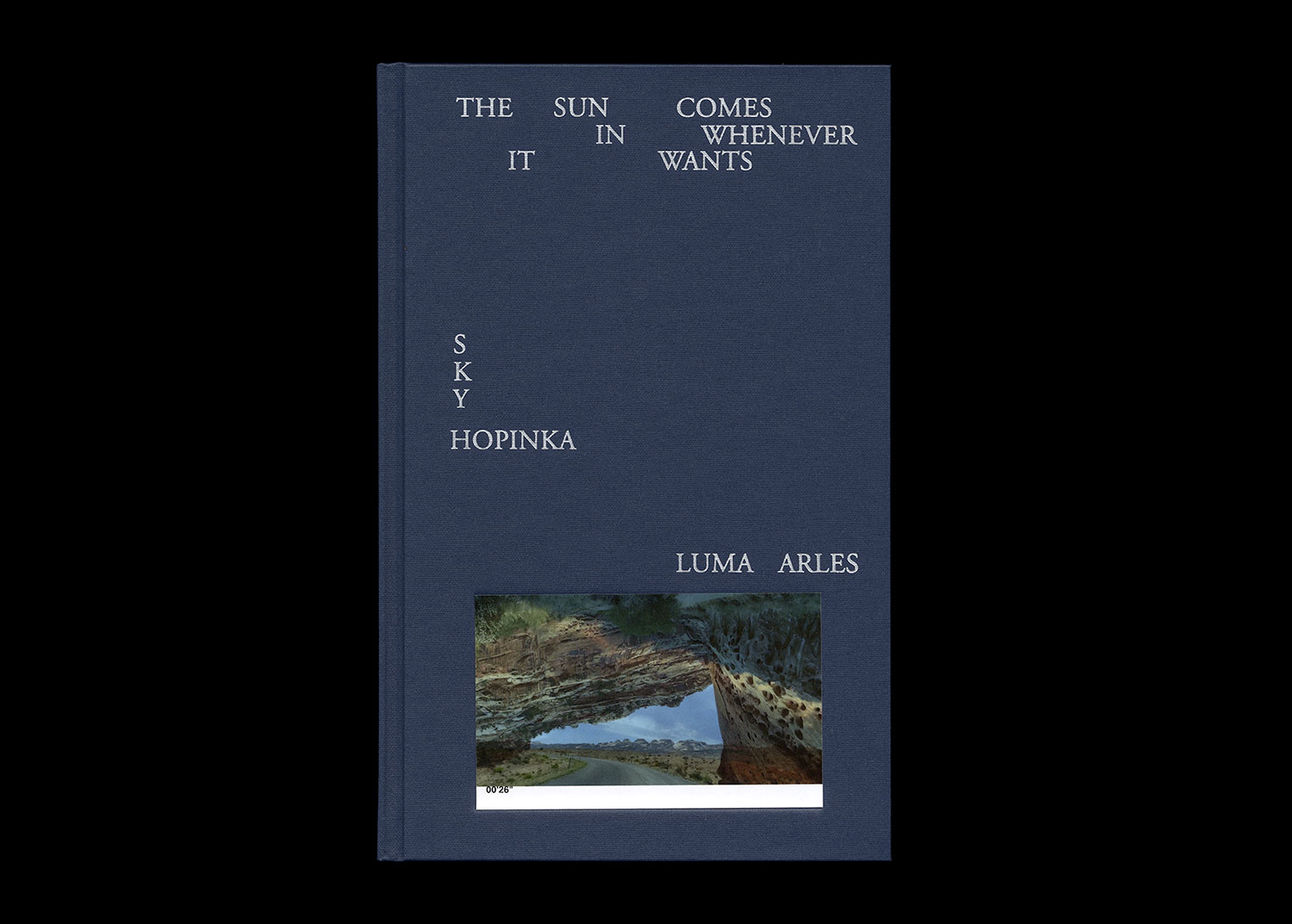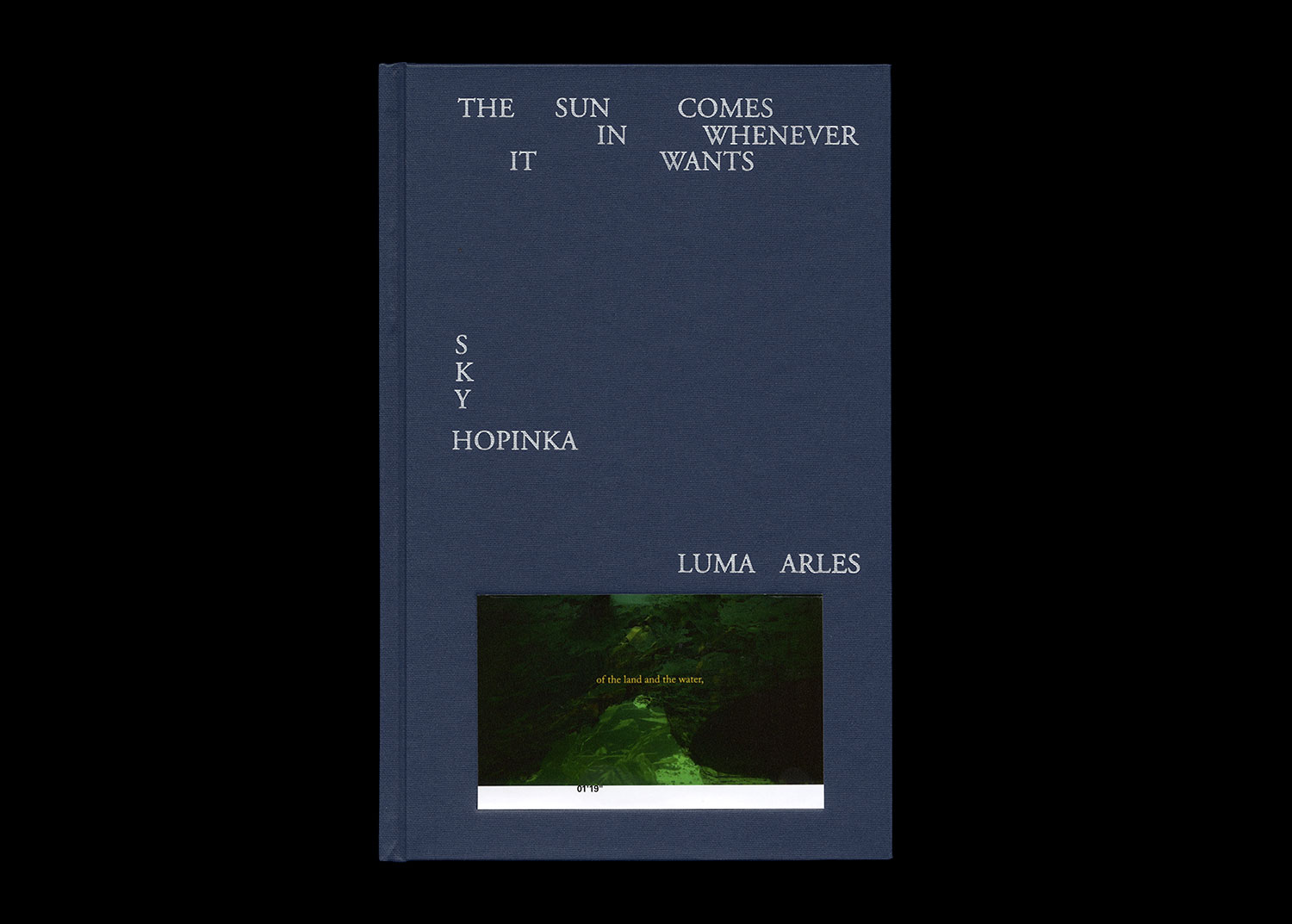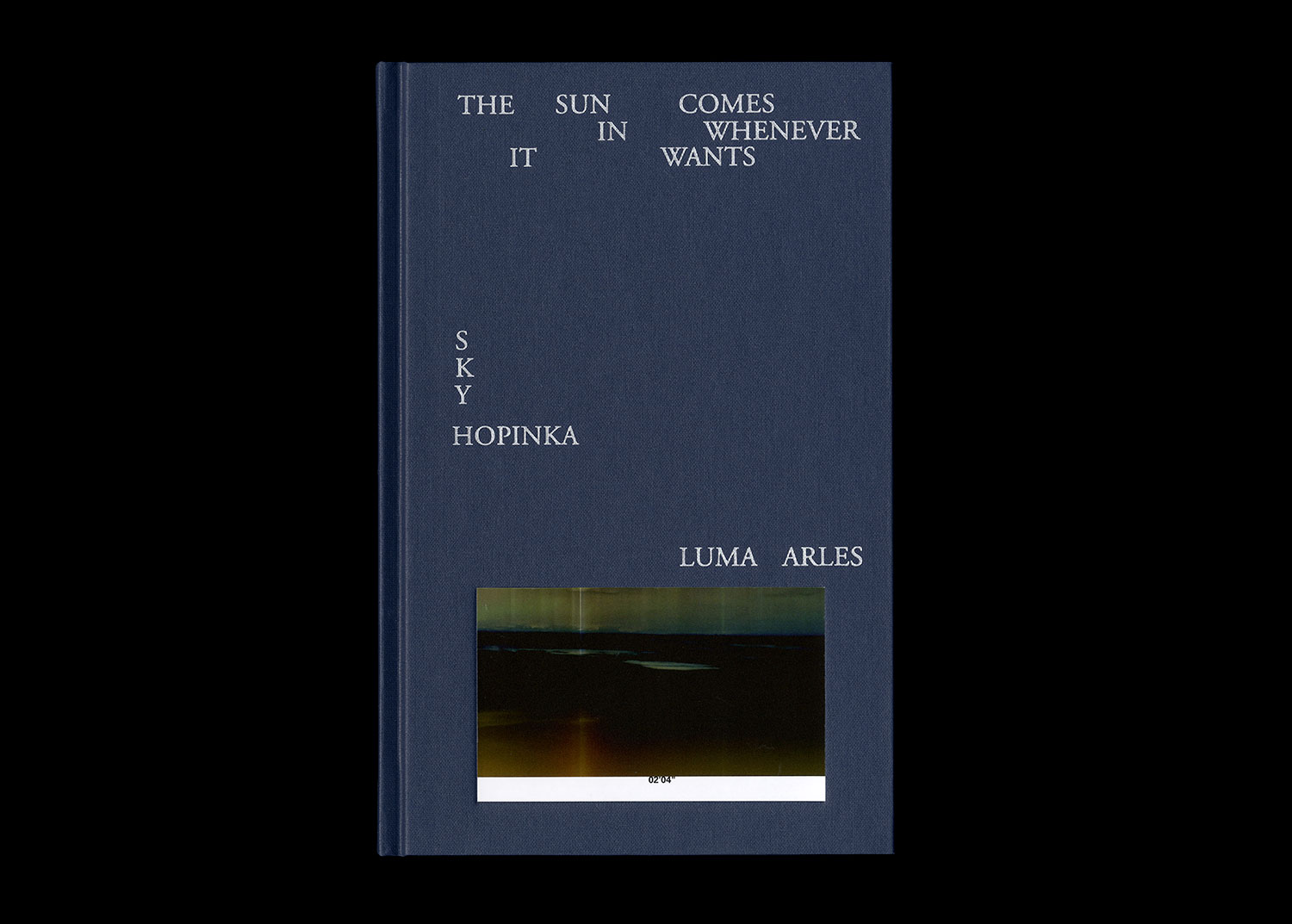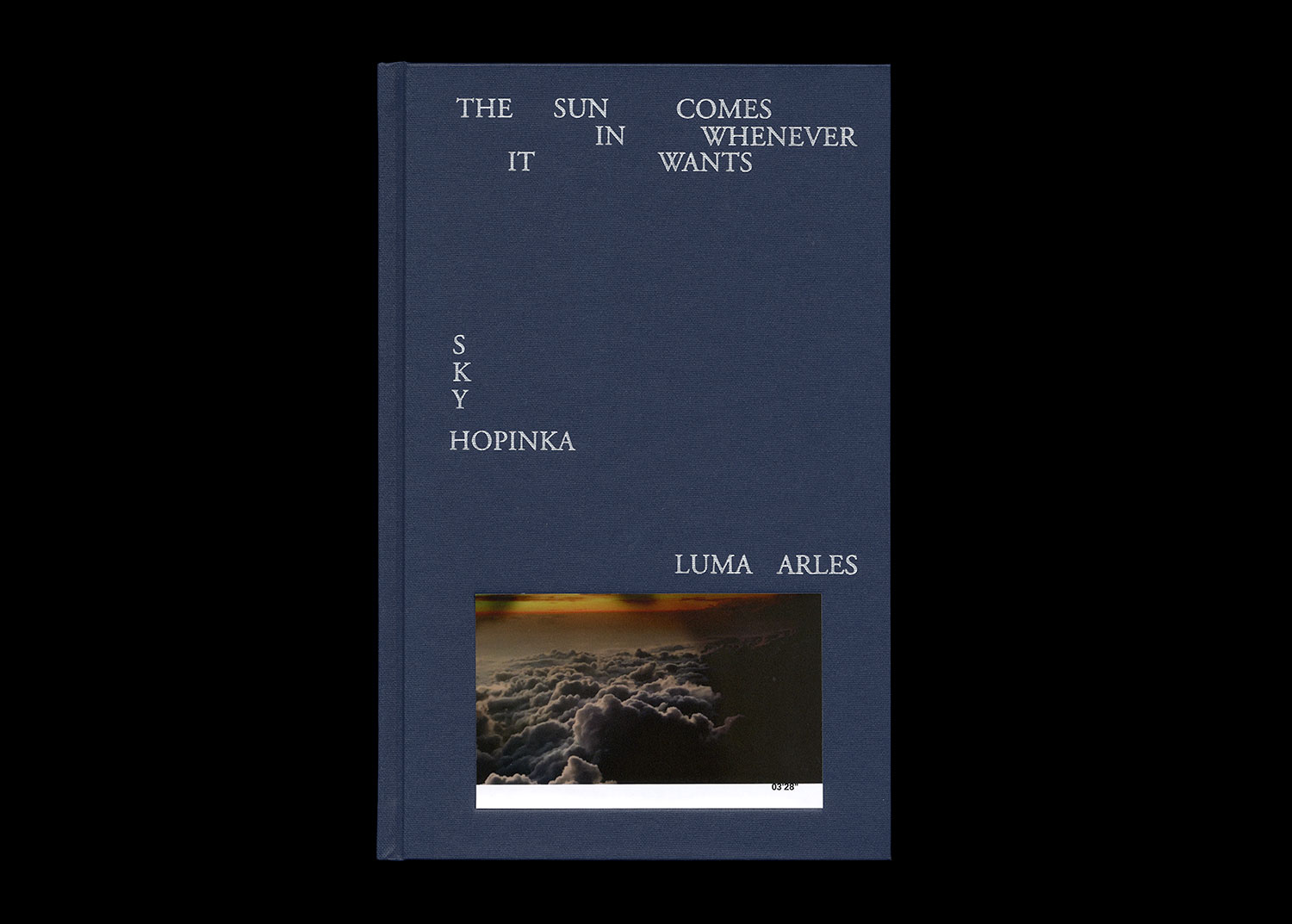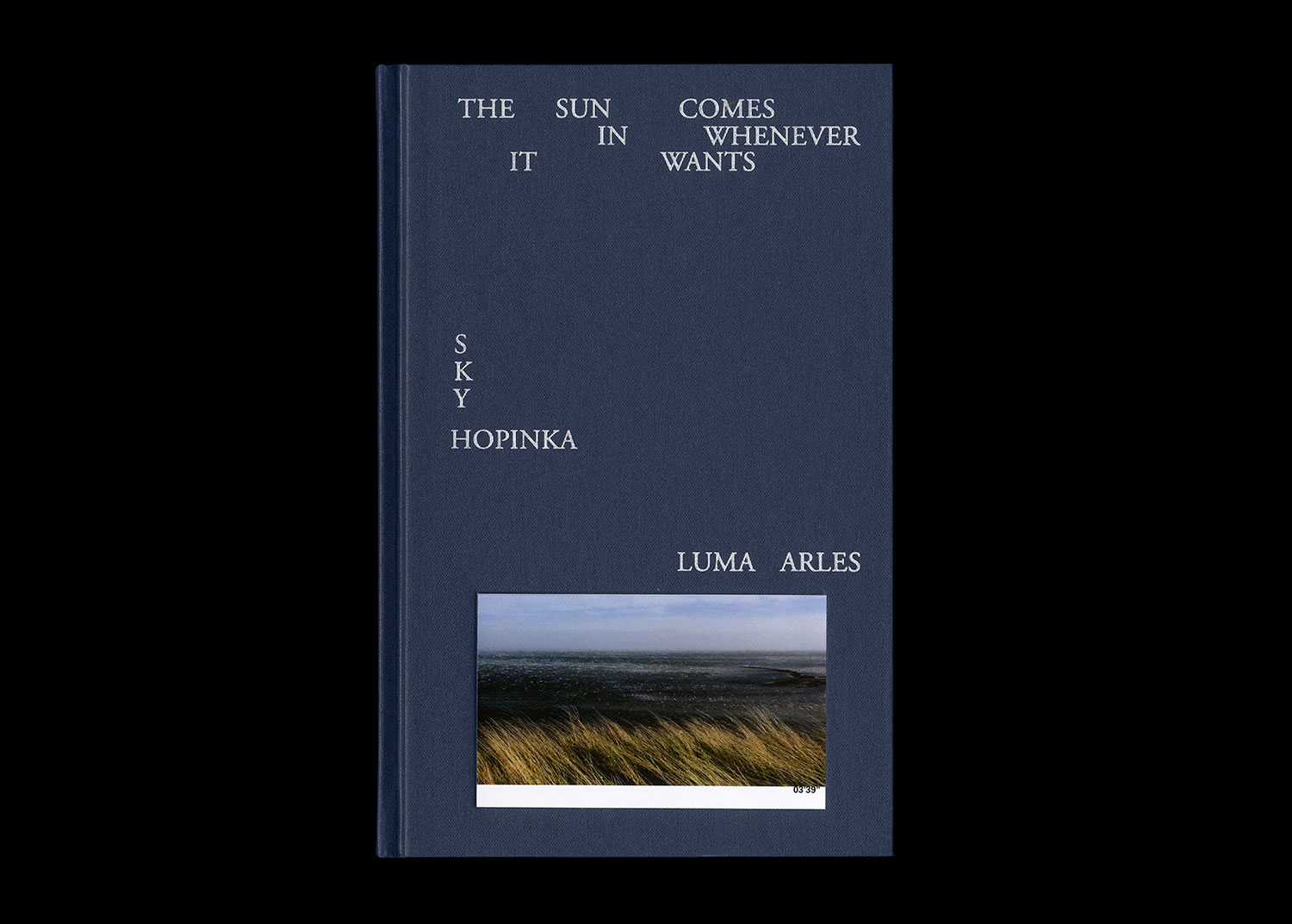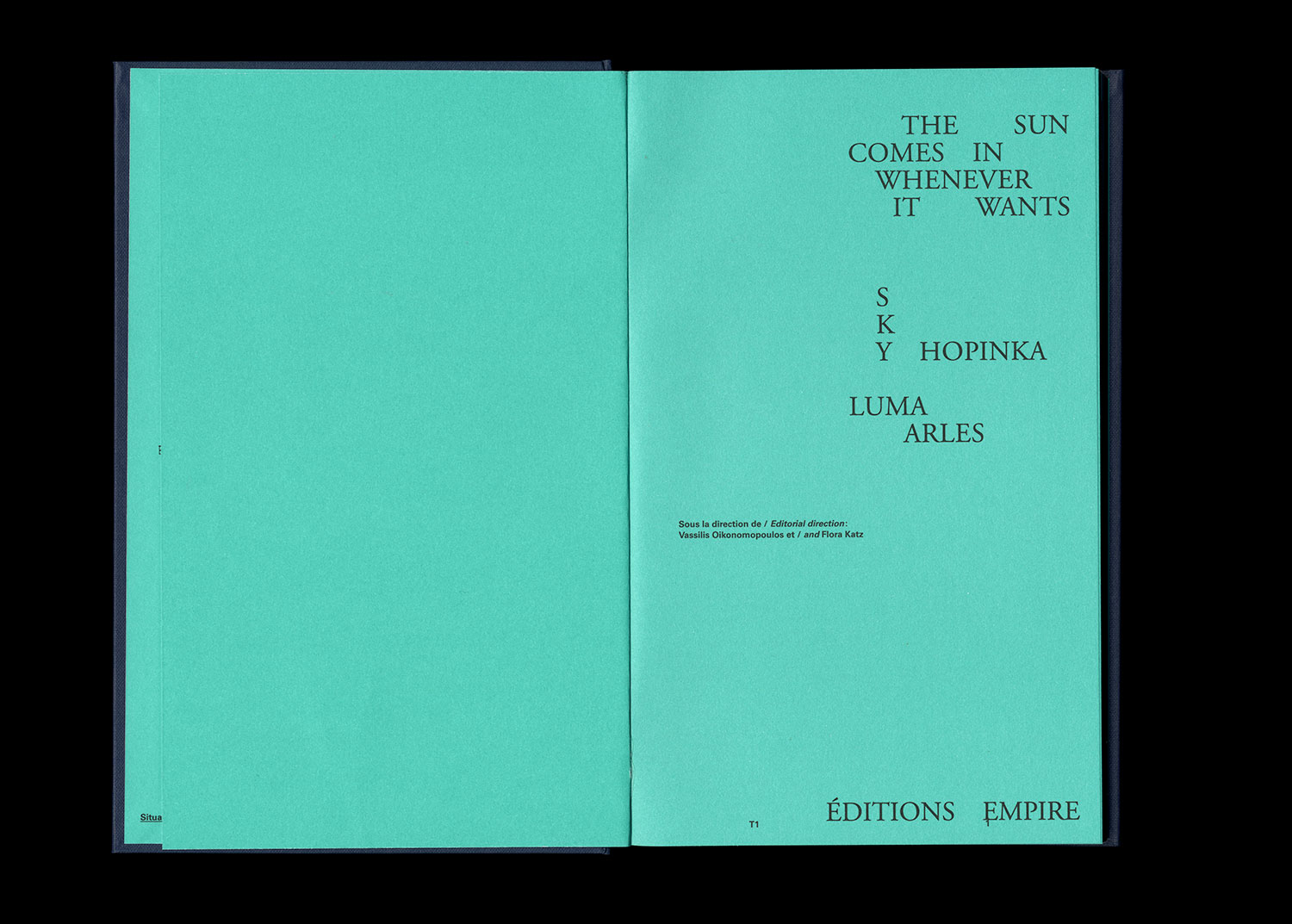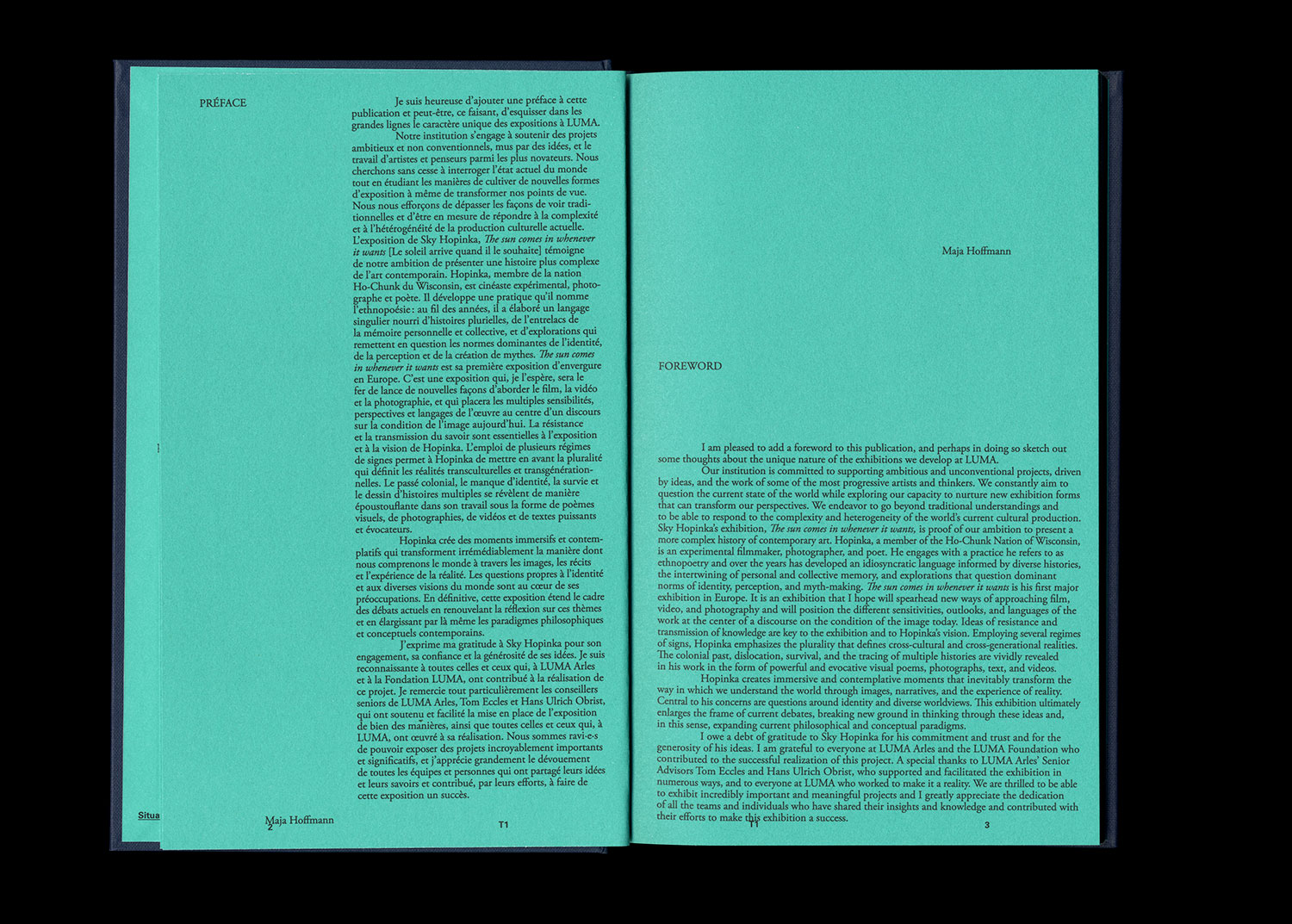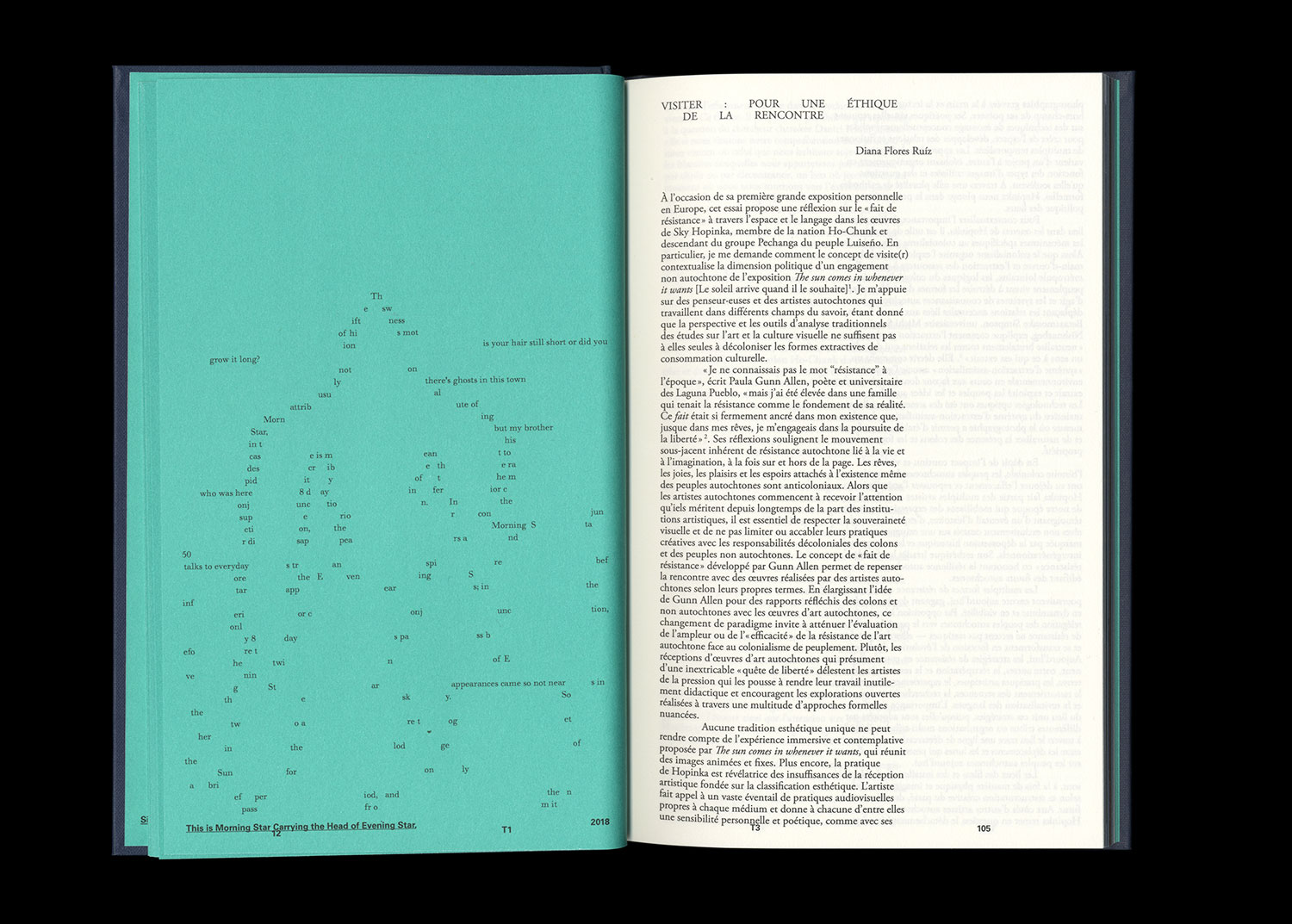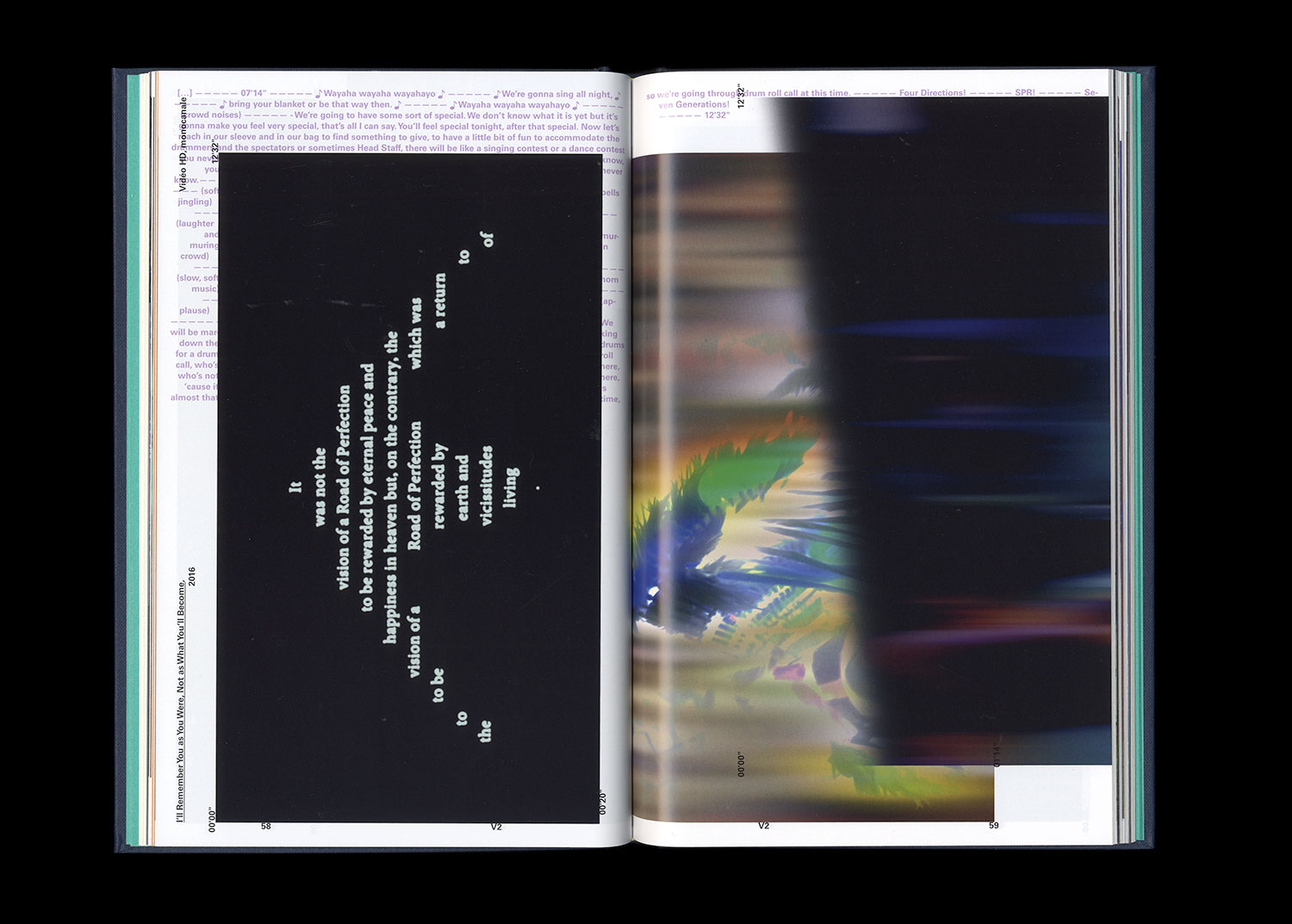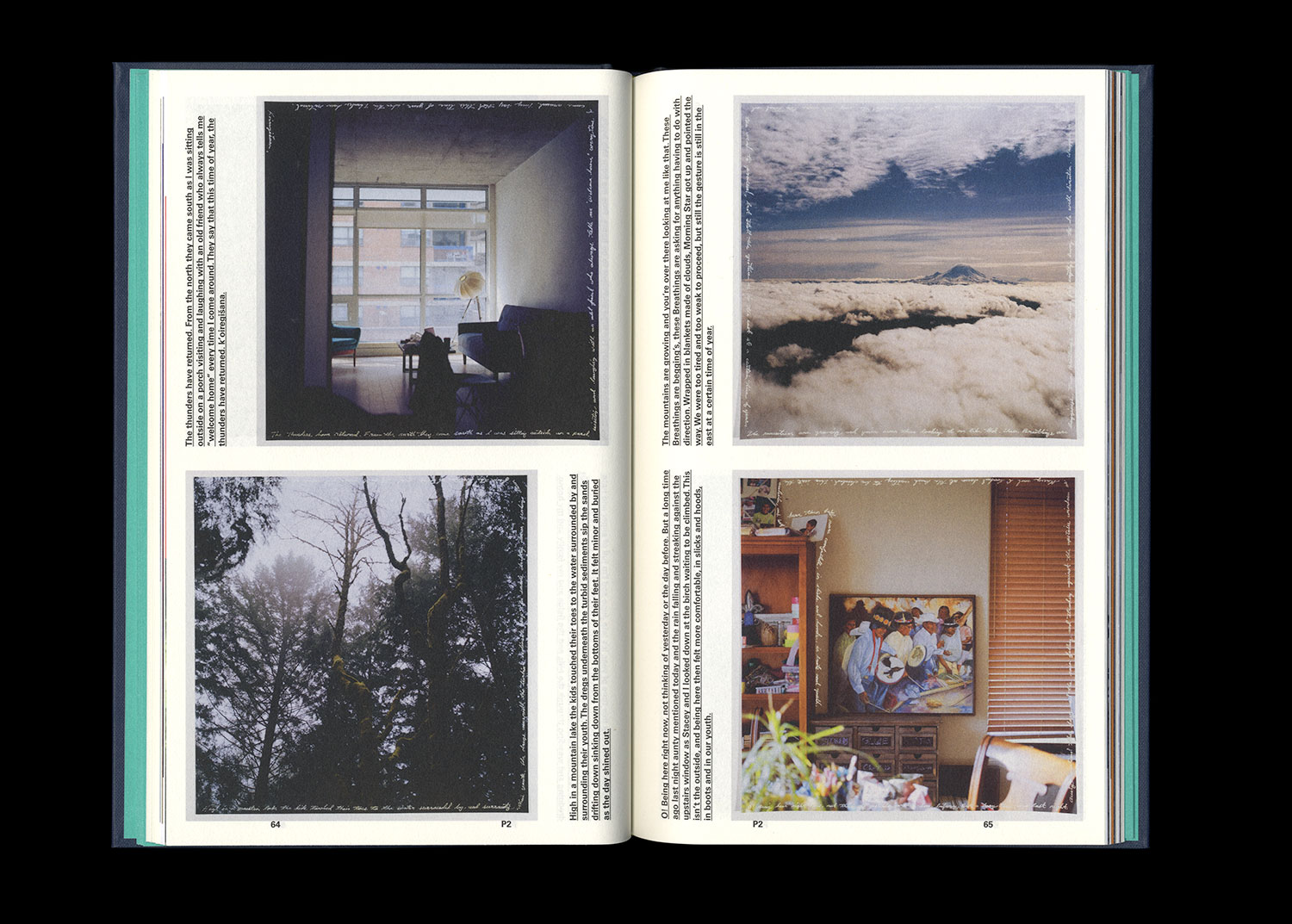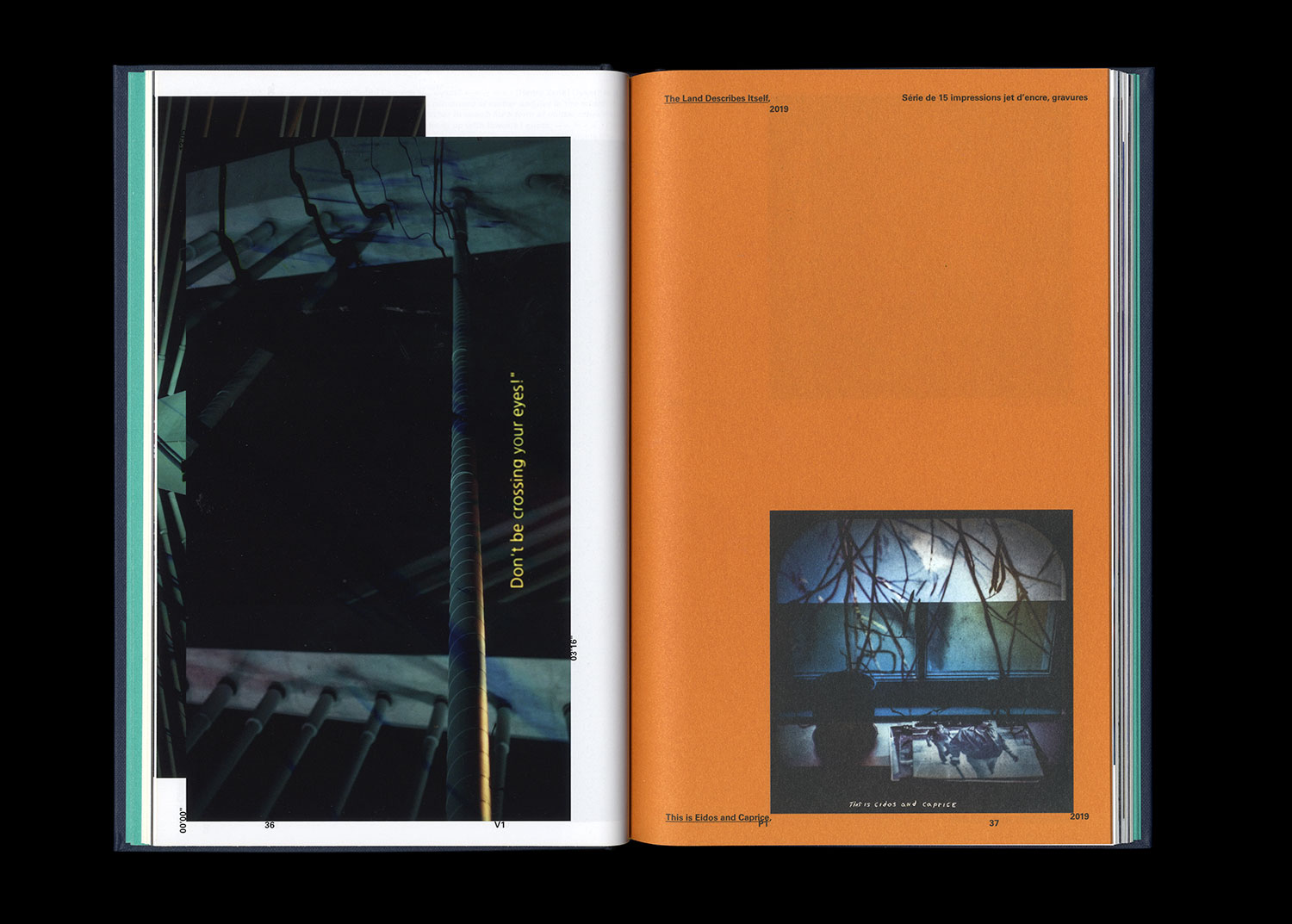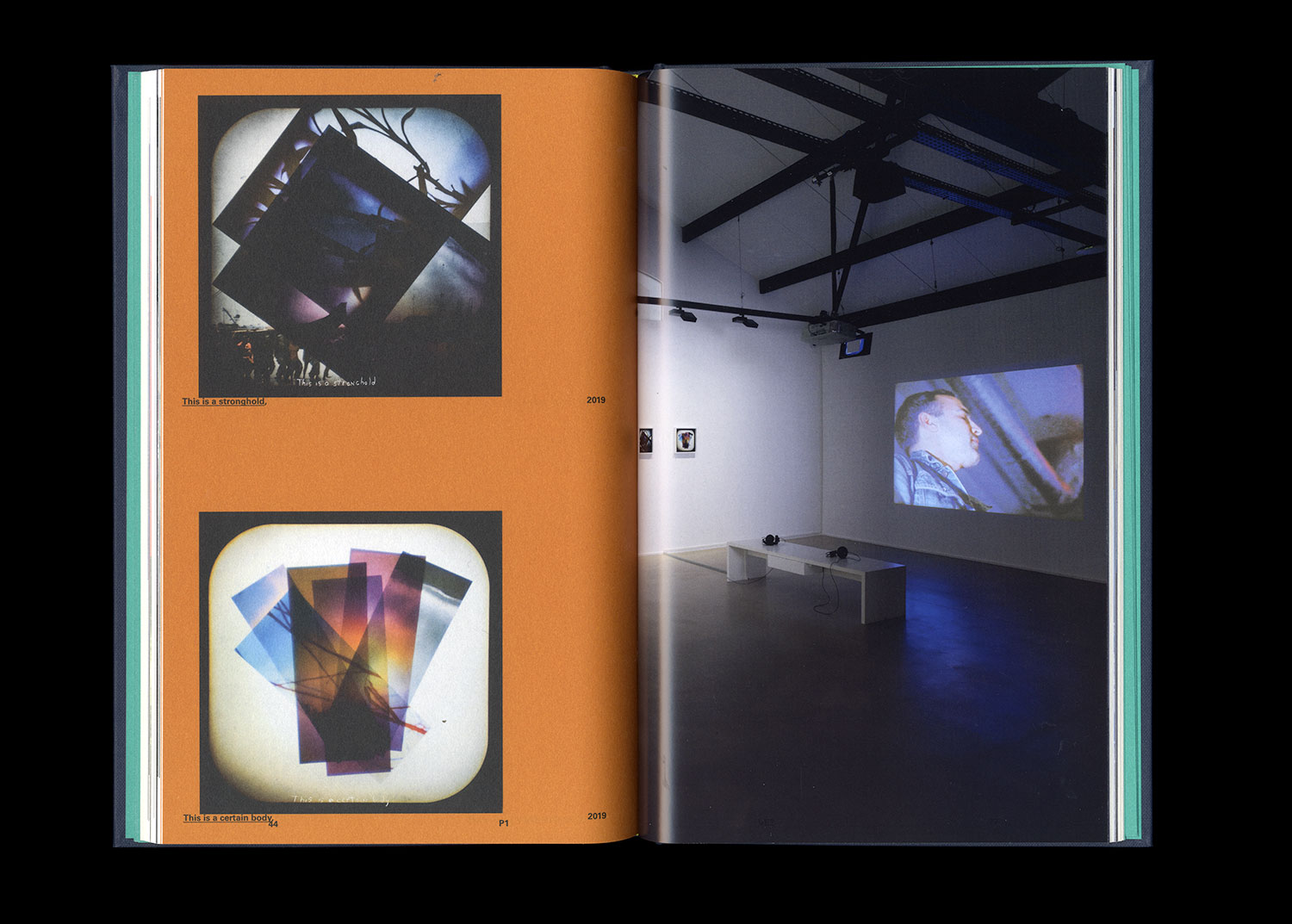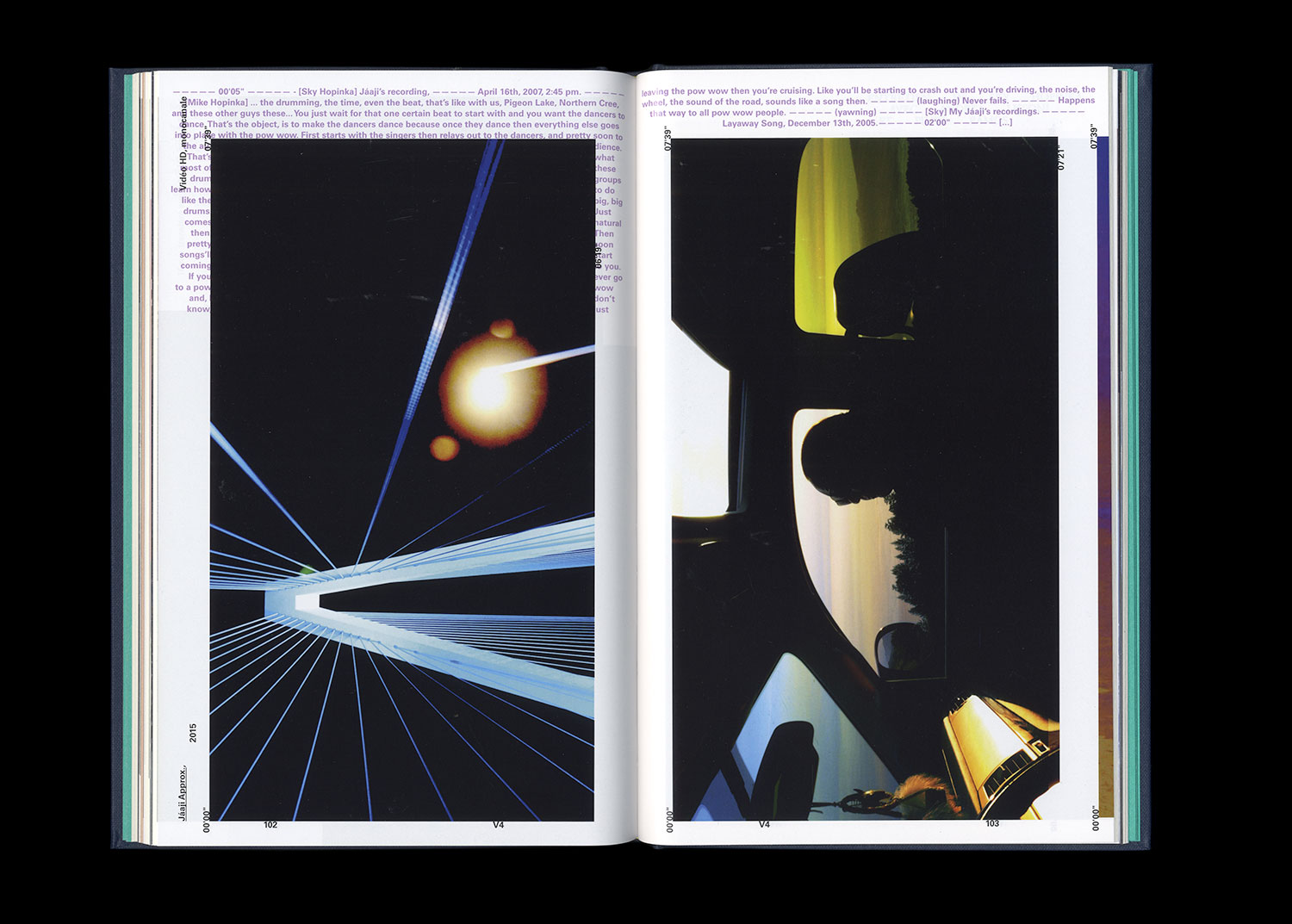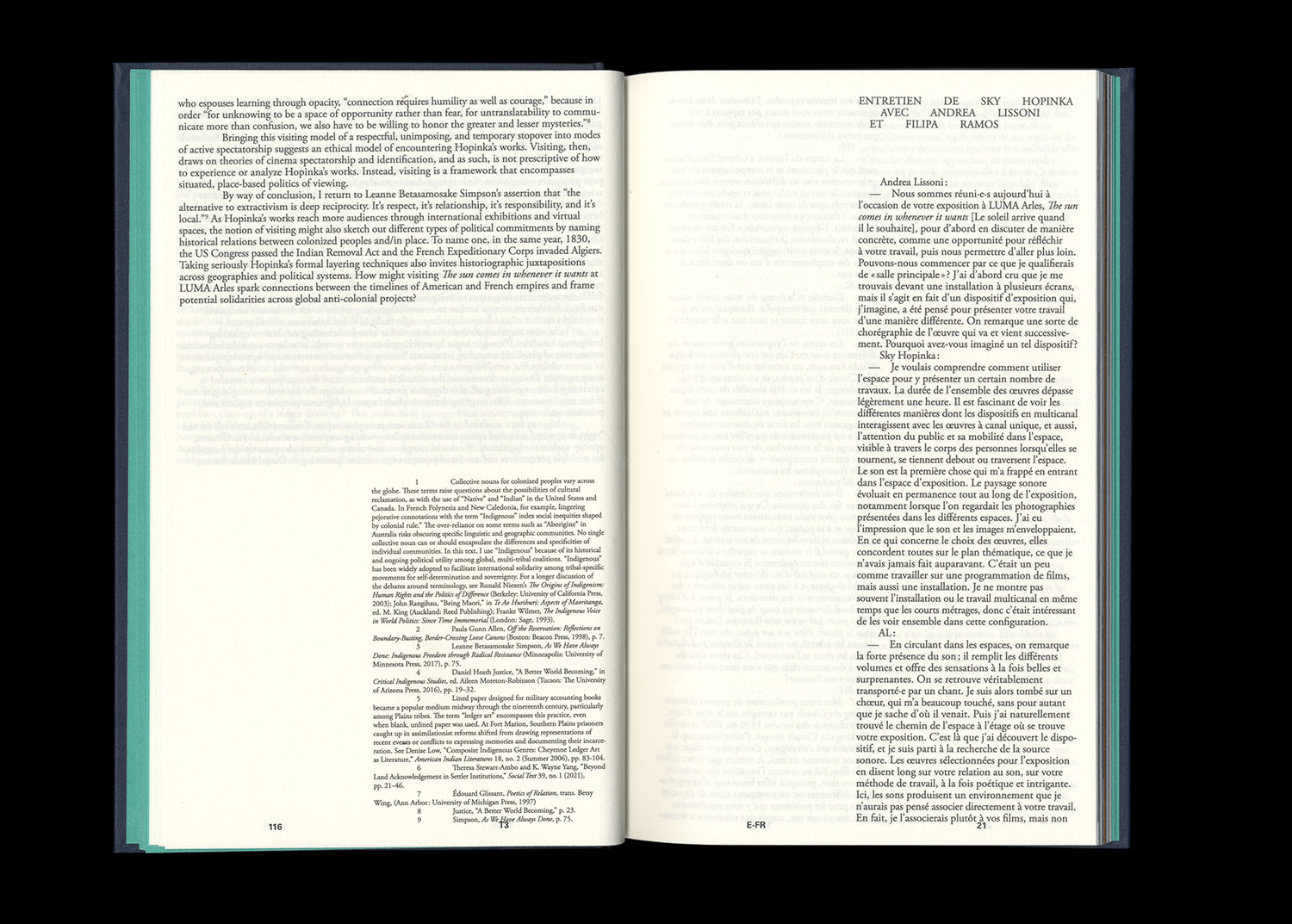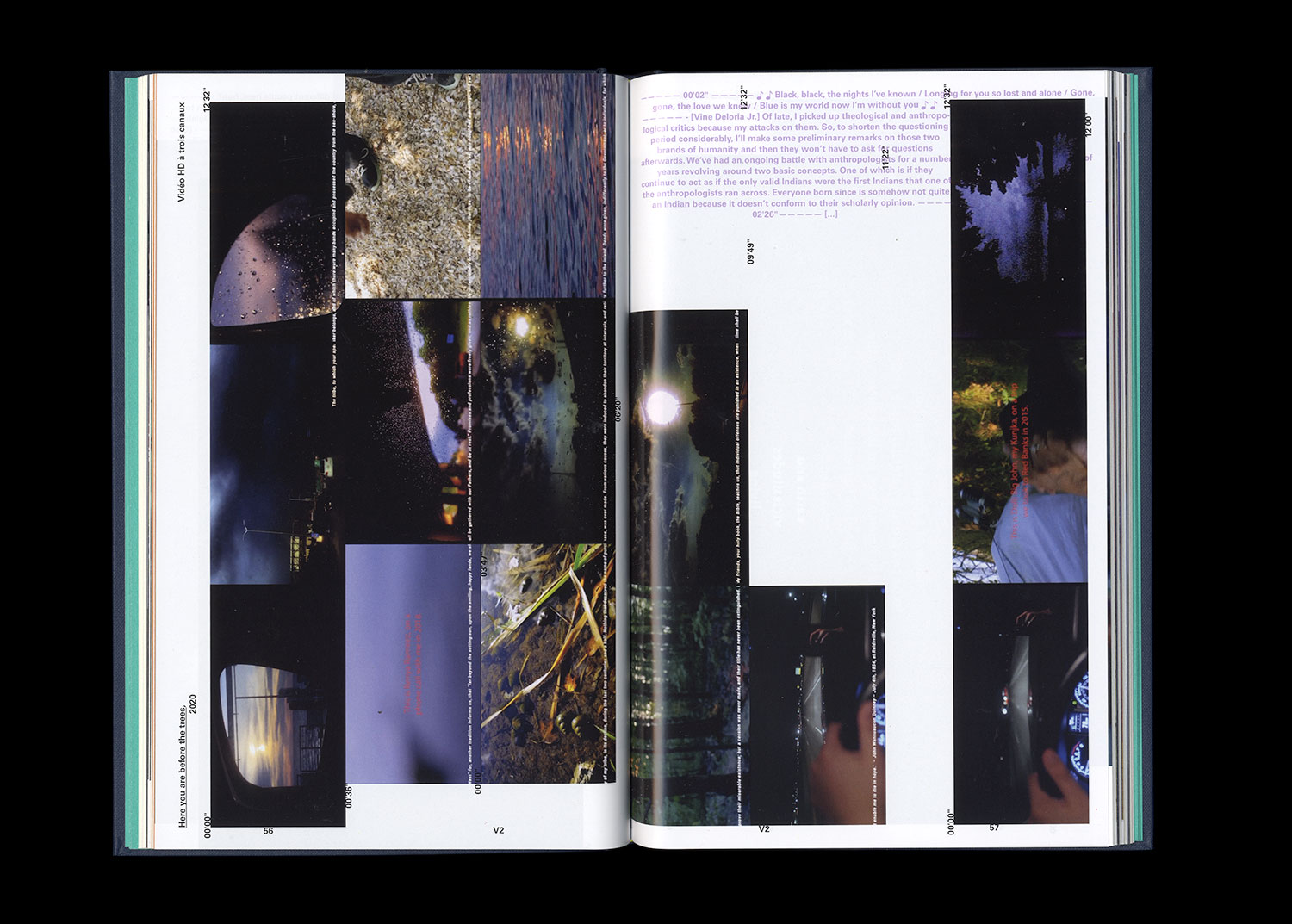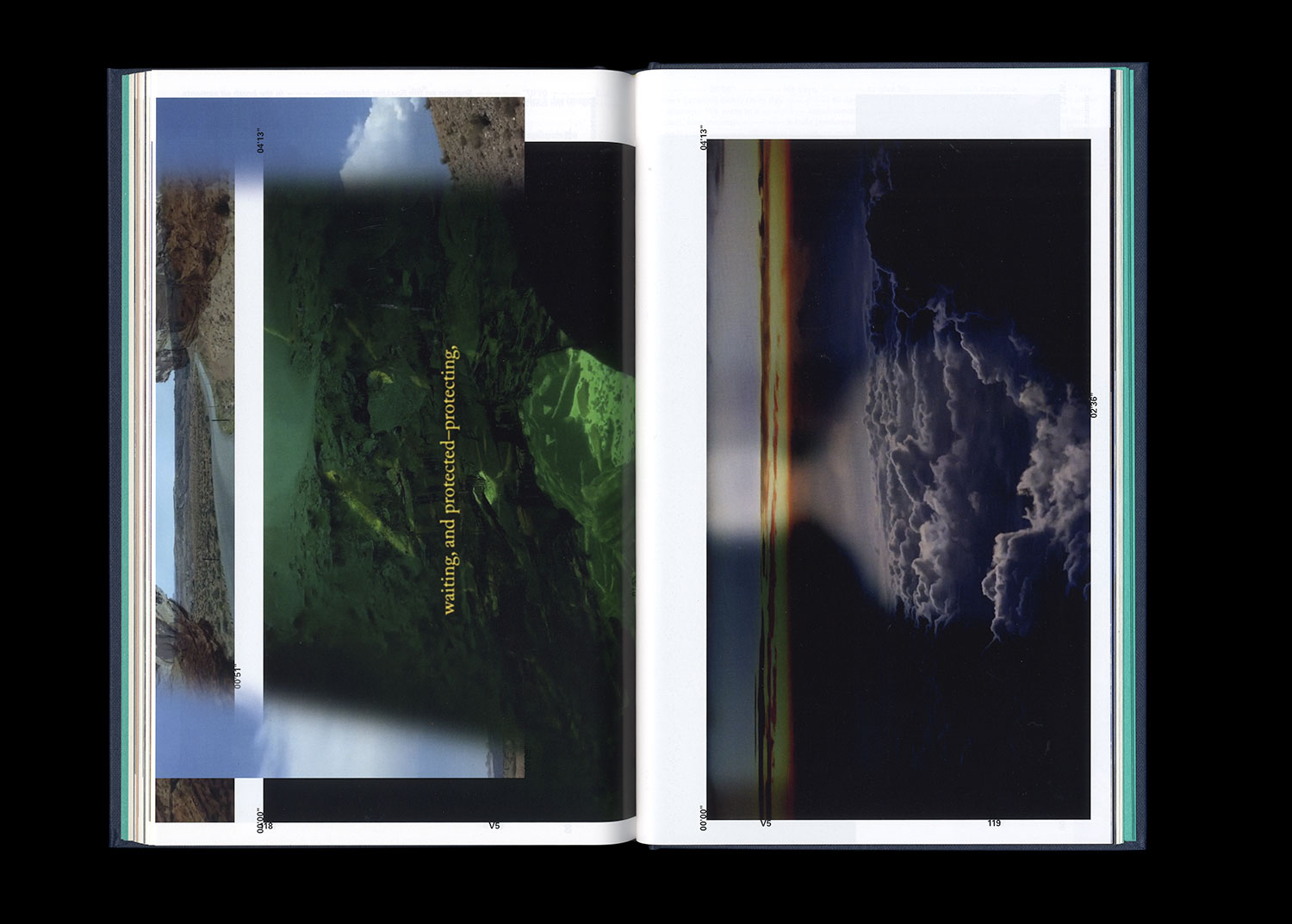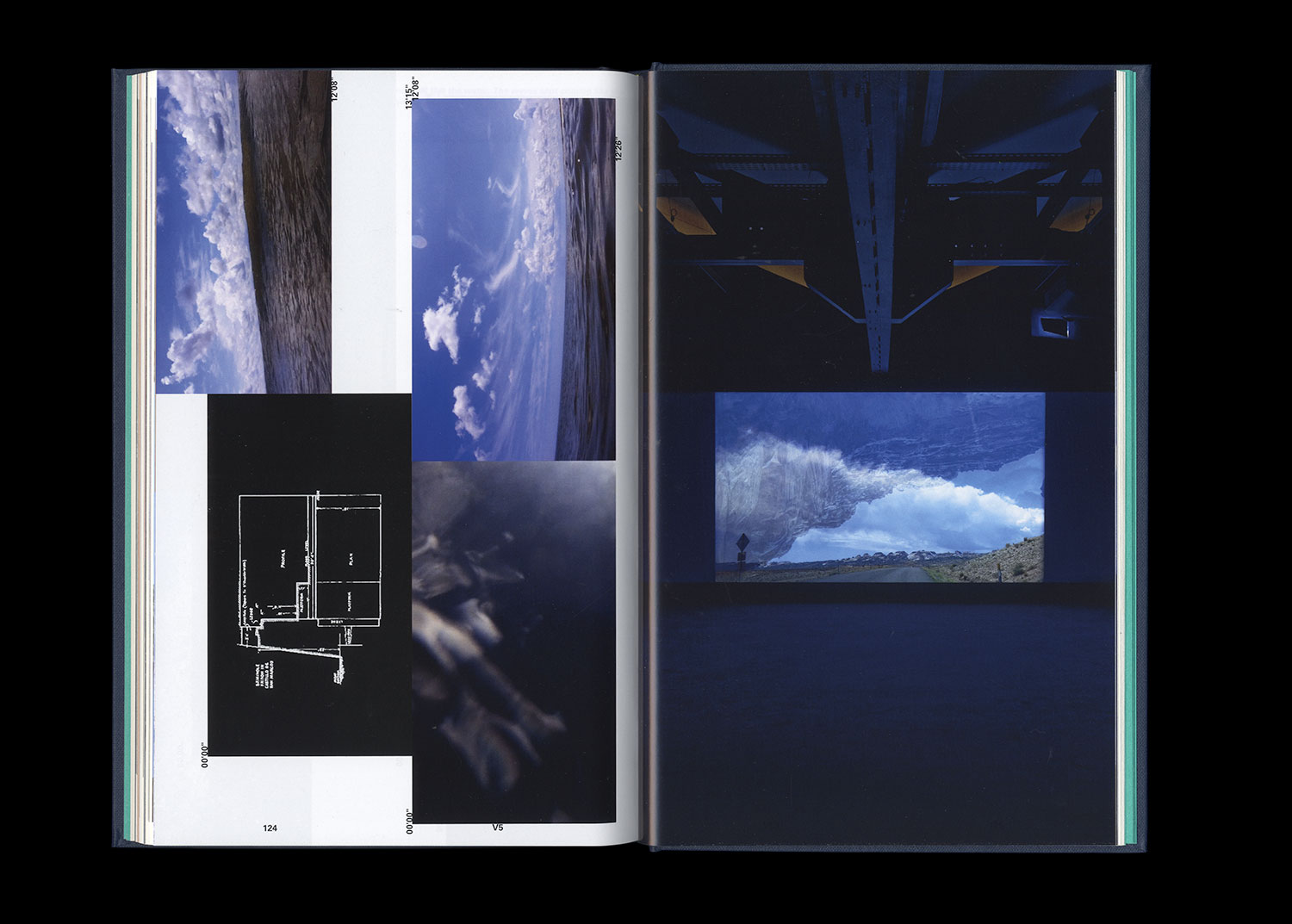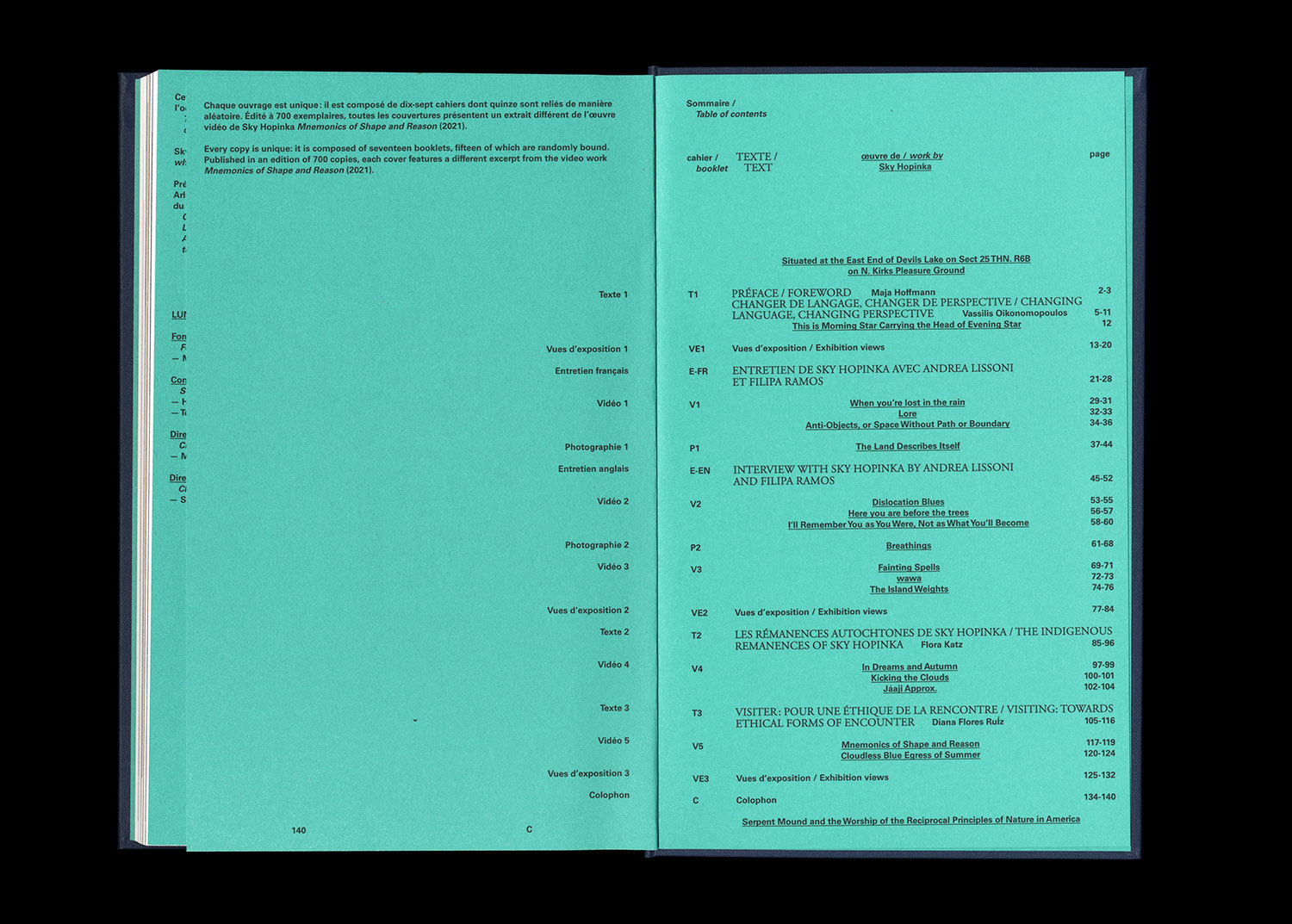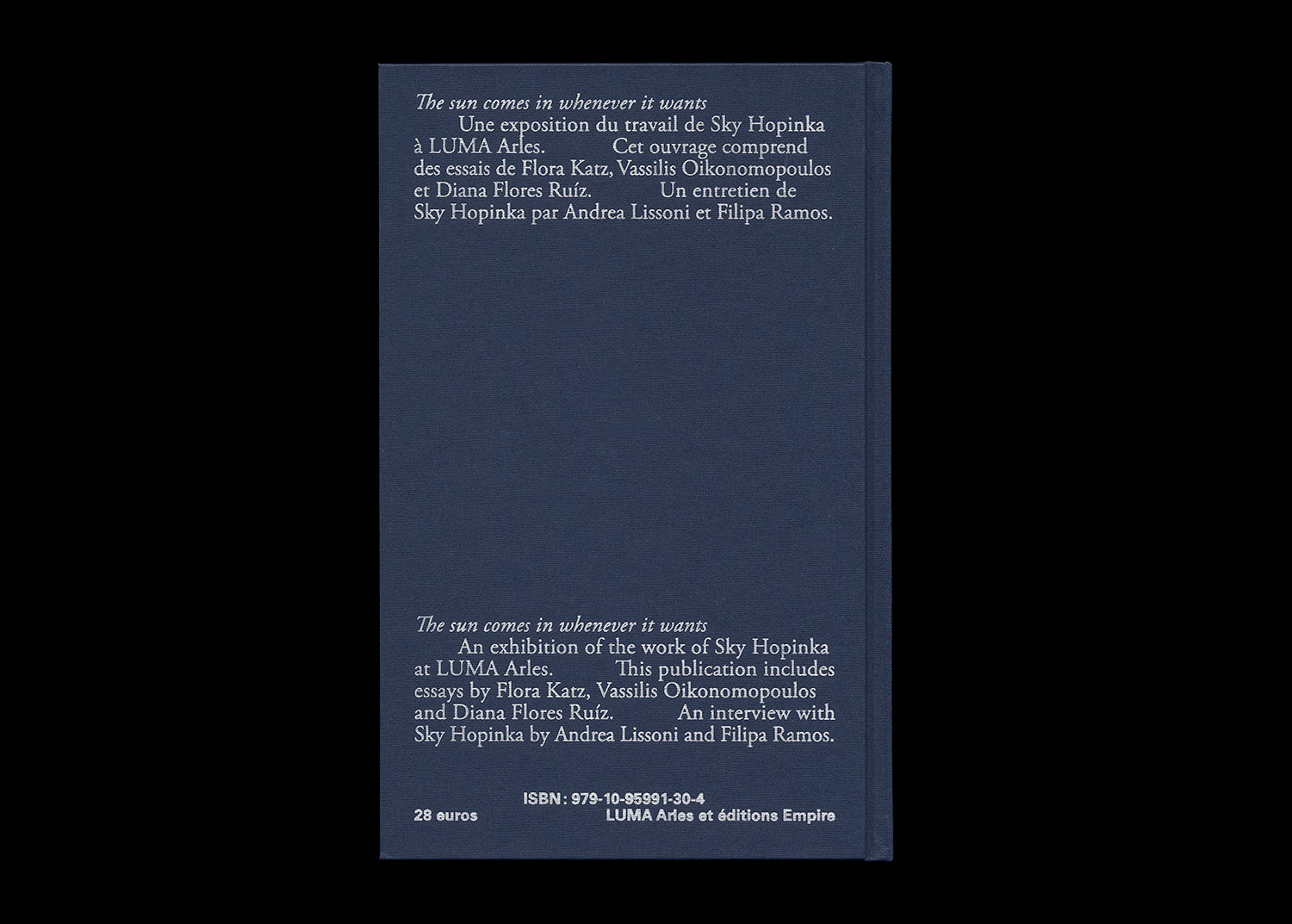The sun comes in whenever it wants, Sky Hopinka
LUMA Arles & Empire books
isbn 979-10-95991-30-4
French/English
146 pages
16 x 25 cm
CMYK + 3 PMS
Design: Syndicat
28 €
2022
The sun comes in whenever it wants
An exhibition of the work of Sky Hopinka at LUMA Arles. This publication includes essays by Flora Katz, Vassilis Oikonomopoulos and Diana Flores Ruíz. An interview with Sky Hopinka by Andrea Lissoni and Filipa Ramos.
Every copy is unique: it is composed of seventeen booklets, fifteen of which are randomly bound. Published in an edition of 700 copies, each cover features a different excerpt from the video work Mnemonics of Shape and Reason (2021).
